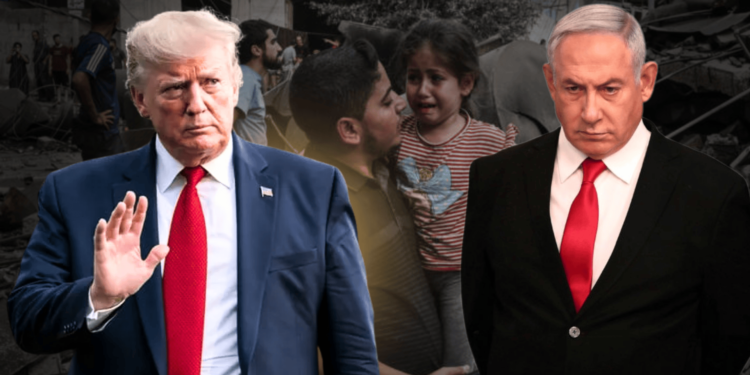Israel and Hamas have agreed to an immediate ceasefire, the release of all hostages, and the withdrawal of Israeli troops from Gaza under the first phase of U.S. President Donald Trump’s peace plan — a deal that could finally pause two years of escalated violence if both sides hold their ground.
Trump announced the breakthrough on Truth Social, calling it a “great day for peace” and confirming that all hostages will be released very soon as part of the initial phase.
“Israel will withdraw their troops to an agreed-upon line as the first steps toward a strong, durable, and everlasting peace,” he said, thanking Qatar, Egypt, and Turkey for brokering the deal.
The agreement requires an immediate halt to military operations and the pullback of Israeli forces from Gaza’s populated areas.
International monitors are expected to oversee compliance, while humanitarian corridors will reopen to allow food, medicine, and aid workers to reach civilians who have endured years of bombardment.
The plan’s durability will depend on both sides honoring their commitments. Israel has repeatedly broken past ceasefires, often resuming strikes on the basis of unsubstantiated intelligence claims or alleged Hamas violations that were never independently verified.
Those actions have eroded trust across the region and fueled perceptions that every truce is merely a prelude to another round of airstrikes.
Still, the fact that both Hamas and Israel have agreed to the same terms — with direct involvement from Qatar, Egypt, and Turkey — marks a diplomatic breakthrough.
Trump described the deal as a “victory for fairness” and said it represents the beginning of a broader peace framework where “all parties will be treated fairly.”
If implemented, the ceasefire would silence the guns, free the hostages, and begin the withdrawal of troops — opening the door to talks on reconstruction, governance, and long-term stability. But for many in Gaza, hope remains cautious and conditioned by history.
That skepticism has long been reinforced by the tone and record of Israeli leadership, particularly under Prime Minister Benjamin Netanyahu.
In his recent address before the United Nations General Assembly, Netanyahu reaffirmed his hardline position, declaring that “Israel must finish the job in Gaza as fast as possible.”
Days later, he clarified that Israel had no intention of a full withdrawal, insisting that the country must ensure Hamas is “disarmed either diplomatically or militarily.”
Such statements are consistent with Netanyahu’s long-held approach to Gaza — one defined by military dominance, territorial control, and a refusal to accept any arrangement that leaves Hamas politically or militarily intact.
His rhetoric underscores the gap between the diplomatic optimism surrounding Trump’s plan and Israel’s entrenched security posture, which continues to view Gaza less as a partner in peace than as an unfinished war.












